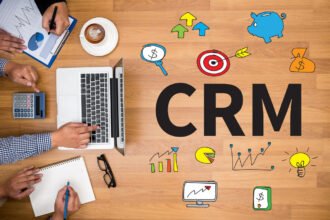Can you?
I don’t need to tell you that the web is progressively beating the library in every battle for information. The search engine has effectively replaced the card catalog, microfilm reader, magazine stand, and bestseller list.
Representing those born after 1993, the Google generation is trending the future with 93 percent of college students satisfied finding […]
—
Thank you for reading! If you enjoyed this, please consider following more tips by RSS or email delivery. | Twitter | FriendFeed | Email
Can you?
 I don’t need to tell you that the web is progressively beating the library in every battle for information. The search engine has effectively replaced the card catalog, microfilm reader, magazine stand, and bestseller list.
I don’t need to tell you that the web is progressively beating the library in every battle for information. The search engine has effectively replaced the card catalog, microfilm reader, magazine stand, and bestseller list.
Representing those born after 1993, the Google generation is trending the future with 93 percent of college students satisfied finding information with search engines, compared to an 84 percent satisfaction rate from librarian-assisted searching.
And that’s if they’re physically entering the library and not calling-in or emailing for help.
Born and raised in homes with computers and internet access, elementary school children (let alone the kindergarteners my sister teaches) are playing online educational games and know about search engines and simplistic social networking sites. How many kids are entering libraries and tracking data with the Dewey Decimal System? Is your child? Are you?
Studies indicate that kids are ingrained with social media tools (even if they don’t know what “social media” as a term means) but are not evaluating the relevance, accuracy, and authority of the results. They assume if something is available online, it’s authentic.
According to a comprehensive January 2008 report by the British Library and the Joint Information Systems Committee to identify trends in future research, the kicker for me comes on page 9:
In general terms, this new form of information seeking behaviour can be characterised as being horizontal, bouncing, checking and viewing in nature. Users are promiscuous, diverse and volatile and it is clear that these behaviours represent serious challenges for traditional information providers, nurtured in a hardcopy paradigm and, in many respects, still tied to it. Libraries must move away from bean counting dubious download statistics, and get much closer to monitoring the actual information seeking behaviour of their users.
The Google generation is computer literate but not information literate. They believe the internet is a thing, not a continually-growing compendium of information and virtual interaction between multiple providers.
Search engines provide information result-by-result, as card catalogs did with each new entry. Perhaps one way to change society is to stop using search engines to find information but to flick between different results for the best one. I do that all the time, but how many of the Google generation do?
Then again, I also visit my public library.
I don’t hold the answers but I have ideas. What about you?
Photo credit: bfurlong
—
Thank you for reading! If you enjoyed this, please consider following more tips by RSS or email delivery. | Twitter | FriendFeed | Email








